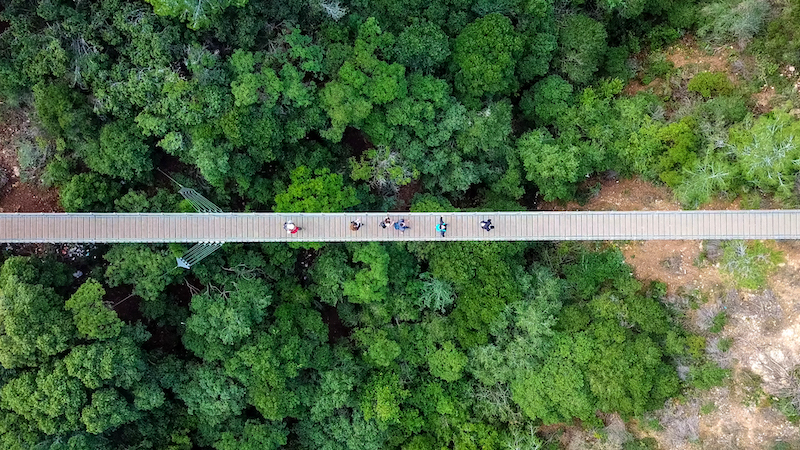Non-grant financing
Not only the public sector realizes that supporting sustainable projects is the right step for whole society. Cities have at their disposal non-grant instruments such as PPP, EPC, EIB financing and others.
Non-grant financing of sustainable urban development projects can have several forms. From loans and guarantee instruments offering more favourable conditions to EPC financing specialized in green economy.

EPC (Energy Performance Contracting)
The principle of EPC is to fund investments in savings measures from achieved savings – it is a complex project with the aim to reduce energy consumption. Measures of investment and non-investment measures are used to reduce consumption of energy and achieve operational savings. The service is provided by just one supplier – energy service company (ESCO). It will contractually guarantee the amount of savings and return of investment and provide the necessary funding, the customer repays the company from the achieved operational savings.
PPP (Public Private Partnership)
PPP is a long-term contract between private entity and public authority on providing public property or service, in which the private entity takes the responsibility for delivering the service or property to specified quality. The commission is performance-based.
Furthermore, PPP projects improve the effectivity of projects due to the long-term motivation of private partners who can better manage construction, costs, and organize effective operation.
EIB Financing
European Investment Bank offers three essential types of financing:
- Loans to both public and private sector,
- Capital financing through private funds, it is financing focused on infrastructure, environment or SMEs,
- EIB guarantees open possibilities for further financing, because they cover possible losses from the portfolio of loans.
Examples of use of EIB financing in the Just Transition Fund in the Czech Republic (in Moravskoslezský, Ústecký and Karlovarský region):
- Loan Facility – it will comprise of EUR 1.5 billion grant from the EU budget and EUR 10 billion loan from the EIB. These loans will be intended for the public sector.
- Guaranteed loans from the InvestEU instrument in the amount of CZK 47 billion, provided by implementing partners – the EIB and ČMZRB.
Českomoravská záruční a rozvojová banka and National Recovery Fund
Loans
ČMZRB offers loan programmes to Type II municipalities in the Czech Republic and the Regional Development Fund (RRF). These products allow for more favourable financing of municipal and city projects.
ČMZRB also offers interest-free loan to energy-efficient projects for small, medium and big entrepreneurs whose target is the Czech Republic;
National Development Fund
National Development Fund (NRF) is the subsidiary of ČMZRB whose investors are Česká spořitelna, Komerční banka, ČSOB and UniCredit Bank. NRF falls under the supervision of the Czech National Bank.
The aim of NRF is to finance the riskier parts of project financing, especially in infrastructure. NRF will finance part of the project costs and will be able to mobilise further private funding thanks to the subordinate character of its financial participation.
NRF will focus, among other things, on infrastructure in environment (water retention, water management structures, energy-efficient projects) or digital infrastructure (Smart City projects, communication networks and the internet, digital identity etc.).
Commercial Banks
Several commercial banks offer products that are linked with sustainability. For example, so-called green mortgages, which are provided for the purchase of energy-efficient properties, or opportunities to invest in green products or to sustainably produced electricity. There are also consumer accounts available at the world market, which motivate the owner to ecologically manage their finances.
Green Bonds
The objective of the green bonds is to finance and support sustainable “green projects” that aim to improve the environment. Typical green projects can be construction of wind or solar farms, production of ecological fuels or reforestation. Green bonds are not taxed. Green bonds are linked with the green agenda and both the issuer and the investor thus show their interest in environmental issues.
In the Czech Republic focus on non-grant financing
Českomoravská záruční a rozvojová banka
Českomoravská záruční a rozvojová banka, a.s. is the development bank of the Czech Republic. It helps, with regard to the economic policy of the Czech government, the development of SMEs, infrastructure and other sectors of economy requiring state aid.
Support from EU
European Investment Bank
European Investment Bank acts in the interest of the EU state members, who are its owners. It offers a number of financial investments and it will offer loans to achieve the goals of the Just Transition Mechanism.
People

Ondřej Ptáček
Principal PwC Expert on Grant Financing
News
We have no results for the given criteria.
Events
PPP in practice: PPP and parking
- Diskuze
- Non-grant financing
- Organizer ARI
Videos

14. 9. 2021
PPP in practice: Does PPP add value for money?

13. 7. 2021
PPP in practice: PPP and social housing

25. 6. 2021
PPP in practice: PPP and public transport depots

15. 6. 2021
PPP in practice: PPP and homes for the elderly

2. 6. 2021
PPP in practice: PPP and parking
Projects
We have no projects on this topic yet.
Another links
We have no results for the given criteria.


